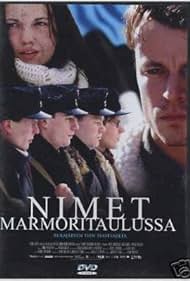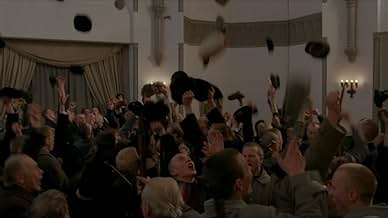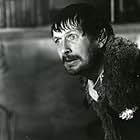Estonians see this film in a little different light than the other people. As a Finn I think Estonians should be proud of this film even if it's not necessarily even a great movie in pure artistic sense. I watched this film with sentiment and that's why I rate it so high. Estonian history concerns us Finns too and we're sorry that you suffered from Russian rule for so long time. We Finns are also happy that you managed to fend off the Red Army in 1918, for their next target would definitely been Finland. The Red Danger was over only in 1920 with the Tarto Treaty, which meant the end of enmities with the Soviet Union. That treaty was signed by both Finns and Estonians and one Finnish General has said that it was only that contract that ended the Finnish Civil War too. He meant that the Estonian war for Freedom was a part of Finnish war for Freedom as well.
I consider 'Nimed Marmortahvlil' as a very interesting movie and I don't think many Finns will disagree with me. The film has been broadcast in Finland twice and I have it on DVD, because it has a special value for me. I confess I might like it less if Peter Franzén had not played in the film. I also admit that the action scenes are not very great: there are over-acting and over-dramatizing but using that ancient light machine-gun in the final battle is interesting. The informal nature of the Estonian army is also notable as they all were just young volunteers without any military training. The action also happens in a minor scale, there is no real epic, and the event frame is somewhat odd to me. I don't figure out what the clock is symbolizing and what are those Latvians doing in Estonia except fighting, of course. Well, I guess the clock symbolizes the battle for Freedom in some sense and the Latvians are fighting for the Communism and not for Latvia. Despite these 'grand mysteries' I find this film very special.









